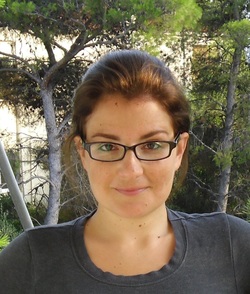
Dr. Rhona Trauvitch is a recent and welcome addition to the faculty at FIU’s English Department. Her courses cover a vast array of topics and interests, such as Literary Tropes in Moving Images (ENG 4132) and Short Stories of Horror and the Weird (LIT 4001). She received her Ph. D. in Comparative Literature at the University of Massachusetts Amherst and taught there before coming to FIU.
- What aspects of film make it worthy of study? Why do you use them as references in your courses?
The moving image is a medium of storytelling, and, as such, enhances our study of narrative. Considering various media gives us a more comprehensive understanding of the subject at hand. I like to diversify the assigned material by including different voices and media so as to provide students with a range of perspectives. For example, in my Science Fiction course, I assign an episode of Star Trek, novels, and a short story in the Language module, and the film District 9, a graphic novel, and short stories in the Alien module.
- You taught a course on the crossing of fiction into reality and in it, your students studied several movie franchises which have garnered massive fanaticism. Why do you think audiences become immersed in the fantasy worlds of films? Is there any film or fandom which has drawn you into its world?
Yes, the franchises include Harry Potter, Star Trek, and The Lord of the Rings. When we fall in love with a story, we want to stay connected to its world and characters even after the back cover closes or the reel unspools. By playing Quidditch, you can bring some of the wizarding world into your own, and by speaking Klingon and Sindarin you can infuse communication with the joy you find in the adventures of the Enterprise and journeys across Middle Earth. While I haven’t participated in a fictional world in these ways myself, I’m very interested in this phenomenon, and learn a lot about it from my students.
- In my opinion, I feel that films have the power to move you. What films, if any, have influenced you in your life and in what way?
Stories are indeed very powerful! Moving images that have influenced me are ones that allow me to look at things in a new light, bring about profound emotions, and inspire me to write – both critically and creatively. Some recent ones include The Leftovers, The OA, and Westworld. Some slightly older ones that have made a strong impact on me include The Hours, Edward Scissorhands, Lost, Lady in the Water, and Contact.
- Are there any aspects of filmmaking which draw your attention or which you feel stand out more than others?
I’m interested in recurring collaborations; so, for instance, when director Tim Burton works with composer Danny Elfman, and when director Sofia Coppola works with actor Kirsten Dunst on several projects. When the same artists work together on a series of movies, these movies share a recognizable quality that sets them apart from others, such that they become something like an artistic genus.
Another aspect of film that draws my attention is the score. Sometimes the score is a kind of musical translation of the screenplay. A fantastic score has the power to make a great film even more dynamic! I’ve noticed that in series such as Lost and The Leftovers, certain musical segments become tied to particular moods, or perhaps emotions experienced by the characters. These repeated segments serve as signals to the audience, guiding and augmenting our experience.
- What kind of issues would you expect to see reflected on film in the years to come? Are there any stories that you feel need to be told on the big screen?
Many ancient stories are retold in a contemporary setting, and it’s interesting that the same tales resonate with us throughout the ages. The issues that I expect to find reflected in moving images are thus primeval ones that are “updated” with the dress of our times. There will always be stories about love, loss, triumph, struggle, and how we react to something/someone unexpected. We will continue to ponder how we came to be and wonder about our role in the universe. We will see ever more sophisticated iterations – across media and genres – of how we encounter these themes and questions.

Kimberly Morles is a Junior at FIU majoring in English. She is pursuing a certificate in Exile and Film Studies.
